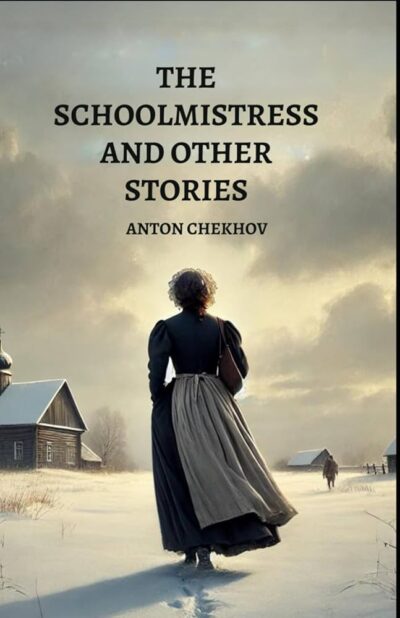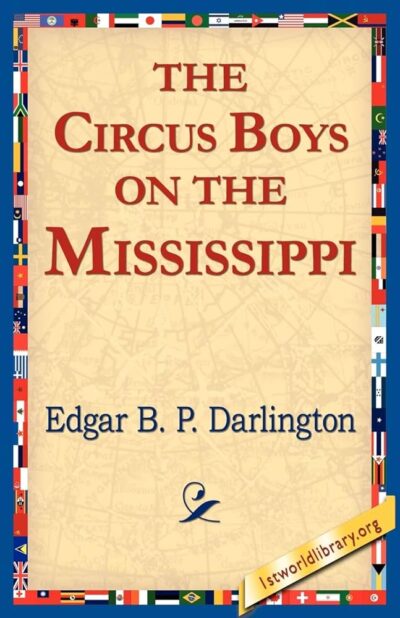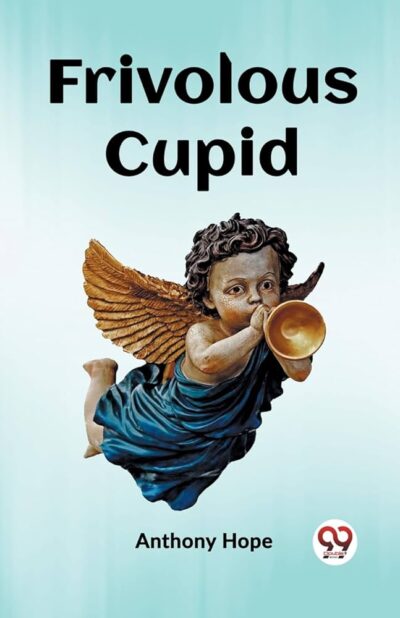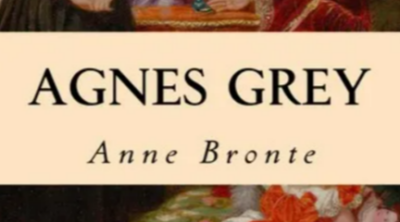853 Results with the "Fiction" genre
Adventure Fiction (1164)
Biography (435)
Business & Finance (1)
Children's Literature (124)
Comics (6)
Culture (51)
Drama (123)
Dystopian (29)
Fable (86)
Fantasy (1132)
Fantasy (203)
Finance (1)
Gothic Fiction (12)
Historical Fiction (615)
History (122)
Horror (56)
Lifestyle (36)
Literary (404)
Literary Fiction (207)
Memoir (113)
Mystery (422)
Non-fiction (87)
Novel (549)
Paranormal Fiction (96)
Philosophical (182)
Philosophy (45)
Poetry (249)
Political Fiction (14)
Politics (42)
Practical (32)
Psychological (4)
Psychological Thriller (108)
Relationship (6)
Romance Novel (716)
Romantic Melodrama (14)
Satire (91)
Science (46)
Science Fiction (345)
Self-help (68)
Society (65)
Society (2)
Spiritual Growth (1)
story (2)
Thriller (704)
True Crime (56)
view (11)
Women's Fiction (2)
Young Adult (233)
-
Chapter
SORROW
 Sorrow weighs heavily on the journey of Grigory Petrov, a man long dismissed for his foolish ways but remembered for his skilled hands. On a bitter, snow-filled night, he guides a rickety sleigh through a storm, his wife Matryona slumped silently beside him. The wind cuts through layers of clothing, yet Grigory speaks to her with a mix of forced optimism and quiet desperation. His words fall into the howling white void, unanswered. He tells her the doctor will surely help. But under his breath, there’s…
Sorrow weighs heavily on the journey of Grigory Petrov, a man long dismissed for his foolish ways but remembered for his skilled hands. On a bitter, snow-filled night, he guides a rickety sleigh through a storm, his wife Matryona slumped silently beside him. The wind cuts through layers of clothing, yet Grigory speaks to her with a mix of forced optimism and quiet desperation. His words fall into the howling white void, unanswered. He tells her the doctor will surely help. But under his breath, there’s…-
78.2 K • Ongoing
-
-
Chapter
The Mother’s Question
 The Mother's Question captures the memory of a son who, now grown, reflects on the tender concerns of his mother during his early years. Whenever he arrived home after a walk in the rain, she would always ask the same thing—whether his feet were wet. Though it seemed like a small detail at the time, that repeated question stood as proof of her deep care and constant vigilance. Her love was expressed through actions: preparing warm socks, heating slippers by the fire, and watching the door until he…
The Mother's Question captures the memory of a son who, now grown, reflects on the tender concerns of his mother during his early years. Whenever he arrived home after a walk in the rain, she would always ask the same thing—whether his feet were wet. Though it seemed like a small detail at the time, that repeated question stood as proof of her deep care and constant vigilance. Her love was expressed through actions: preparing warm socks, heating slippers by the fire, and watching the door until he…-
116.6 K • Ongoing
-
-
Chapter
Part IV — Buttered Side Down
 Part IV begins in a small Midwestern town just as Ivy Keller returns from finishing school, filled with polished manners and romantic daydreams shaped by poetry and novels. Her days stretch long and uneventful until she notices Rudie Schlachweiler, the town's celebrated pitcher. With his square jaw and local fame, Rudie quickly becomes more than a passing interest. Ivy, once indifferent to baseball, finds herself at every game, learning the rhythms of the sport just to watch him pitch. Her admiration…
Part IV begins in a small Midwestern town just as Ivy Keller returns from finishing school, filled with polished manners and romantic daydreams shaped by poetry and novels. Her days stretch long and uneventful until she notices Rudie Schlachweiler, the town's celebrated pitcher. With his square jaw and local fame, Rudie quickly becomes more than a passing interest. Ivy, once indifferent to baseball, finds herself at every game, learning the rhythms of the sport just to watch him pitch. Her admiration…-
48.6 K • Ongoing
-
-
 Chapter III begins with a burst of laughter that feels rare yet welcome within the routines of circus life. Mr. Sparling, typically composed and professional, can't suppress his amusement as Teddy manages to turn a moment of disobedience into an improvised performance. Despite his tendency to stir trouble, Teddy's charm often wins the crowd—and even his boss—over. He takes pride in wrangling January, the temperamental donkey, boasting as if it were a high-wire act. His antics bring levity, but also…
Chapter III begins with a burst of laughter that feels rare yet welcome within the routines of circus life. Mr. Sparling, typically composed and professional, can't suppress his amusement as Teddy manages to turn a moment of disobedience into an improvised performance. Despite his tendency to stir trouble, Teddy's charm often wins the crowd—and even his boss—over. He takes pride in wrangling January, the temperamental donkey, boasting as if it were a high-wire act. His antics bring levity, but also…-
101.4 K • Ongoing
-
-
Chapter
Chapter VIII ‑Frivolous Cupid
 Chapter VIII opens with Ashimullah once again caught in the tightening grip of court expectations, his personal beliefs increasingly at odds with the roles imposed on him by his royal duties. Although once a Christian, his conversion to Islam was more a matter of necessity than conviction, and the Sultan’s recent insistence on his maintaining a traditional Muslim household—with multiple wives—tests his integrity. Ashimullah has no desire to take more wives, not from fear or disdain, but out of deep…
Chapter VIII opens with Ashimullah once again caught in the tightening grip of court expectations, his personal beliefs increasingly at odds with the roles imposed on him by his royal duties. Although once a Christian, his conversion to Islam was more a matter of necessity than conviction, and the Sultan’s recent insistence on his maintaining a traditional Muslim household—with multiple wives—tests his integrity. Ashimullah has no desire to take more wives, not from fear or disdain, but out of deep…-
43.1 K • Ongoing
-
-
 Chapter I presents the village of Ukleevo as both humble and harsh, shaped by its environment and the quiet decline of rural traditions. The land is drained by fever and the smoke of small industries that barely lift the people above subsistence. Local legends revolve not around greatness, but around oddities, such as the tale of a deacon who once overindulged in caviare at a funeral—humorous yet symbolic of how even minor events mark the town’s memory. This story, passed around in whispers, becomes…
Chapter I presents the village of Ukleevo as both humble and harsh, shaped by its environment and the quiet decline of rural traditions. The land is drained by fever and the smoke of small industries that barely lift the people above subsistence. Local legends revolve not around greatness, but around oddities, such as the tale of a deacon who once overindulged in caviare at a funeral—humorous yet symbolic of how even minor events mark the town’s memory. This story, passed around in whispers, becomes…-
165.6 K • Ongoing
-
-
Chapter
The Slaying of Paris
 The Slaying of Paris marks a pivotal moment in the closing arc of the Trojan War saga, where vengeance, fate, and long-awaited justice converge. With Deiphobus now leading the Trojans, the Greeks grow weary and frustrated, unable to bring the war to its end. Calchas, their trusted seer, calls for the return of Philoctetes—an archer left behind on the island of Lemnos because of a festering wound that once drove his comrades away. Years of solitude hardened Philoctetes, who survived only through…
The Slaying of Paris marks a pivotal moment in the closing arc of the Trojan War saga, where vengeance, fate, and long-awaited justice converge. With Deiphobus now leading the Trojans, the Greeks grow weary and frustrated, unable to bring the war to its end. Calchas, their trusted seer, calls for the return of Philoctetes—an archer left behind on the island of Lemnos because of a festering wound that once drove his comrades away. Years of solitude hardened Philoctetes, who survived only through…-
55.8 K • Ongoing
-
-
Chapter
My First Stage
 My First Stage begins in the serene yet suffocating village of Muddleton, where reputations are shaped not by actions but by the whispers passed over cups of tea. It is in Mrs. O'Reilly's sunlit drawing room, decorated with delicate porcelain and careful social airs, that a rumor first flickers to life. During a seemingly innocent afternoon visit, she shares a provocative remark with Miss Lena Houghton—that Mr. Sigismund Zaluski, a visiting foreigner, may be aligned with radical ideologies. This isn't…
My First Stage begins in the serene yet suffocating village of Muddleton, where reputations are shaped not by actions but by the whispers passed over cups of tea. It is in Mrs. O'Reilly's sunlit drawing room, decorated with delicate porcelain and careful social airs, that a rumor first flickers to life. During a seemingly innocent afternoon visit, she shares a provocative remark with Miss Lena Houghton—that Mr. Sigismund Zaluski, a visiting foreigner, may be aligned with radical ideologies. This isn't…-
33.6 K • Ongoing
-
-
Chapter
Chapter IV: Hero-Stuff
 Chapter IV: Hero-Stuff begins with the quiet rhythm of life at the Place, a routine Lad has come to cherish. His world, centered around his people and his familiar surroundings, is gently stirred when the Master introduces a new puppy—Lady. At first, the intent seems kind, aimed at giving Lad companionship, but the result is far more complex than expected. Lady’s presence does not fill a gap Lad knew he had; instead, it reshapes the emotional landscape. Their bond grows over time, but it’s not simple…
Chapter IV: Hero-Stuff begins with the quiet rhythm of life at the Place, a routine Lad has come to cherish. His world, centered around his people and his familiar surroundings, is gently stirred when the Master introduces a new puppy—Lady. At first, the intent seems kind, aimed at giving Lad companionship, but the result is far more complex than expected. Lady’s presence does not fill a gap Lad knew he had; instead, it reshapes the emotional landscape. Their bond grows over time, but it’s not simple…-
39.8 K • Ongoing
-
-
Chapter
Chapter XIX — The Letter
 Chapter XIX – The Letter begins in the wake of Mr. Grey’s passing, casting a somber mood over the family. Agnes, her sister Mary, and their mother are now faced with the practical realities of surviving on limited means. While grief lingers in the background, the focus gradually shifts to what comes next. Mary, now comfortably married to Mr. Richardson, offers a solution. She writes with affection and concern, proposing that their mother come live with her and her husband at the vicarage. She insists…
Chapter XIX – The Letter begins in the wake of Mr. Grey’s passing, casting a somber mood over the family. Agnes, her sister Mary, and their mother are now faced with the practical realities of surviving on limited means. While grief lingers in the background, the focus gradually shifts to what comes next. Mary, now comfortably married to Mr. Richardson, offers a solution. She writes with affection and concern, proposing that their mother come live with her and her husband at the vicarage. She insists…-
106.0 K • Ongoing
-
- 1 2 … 101 Next
